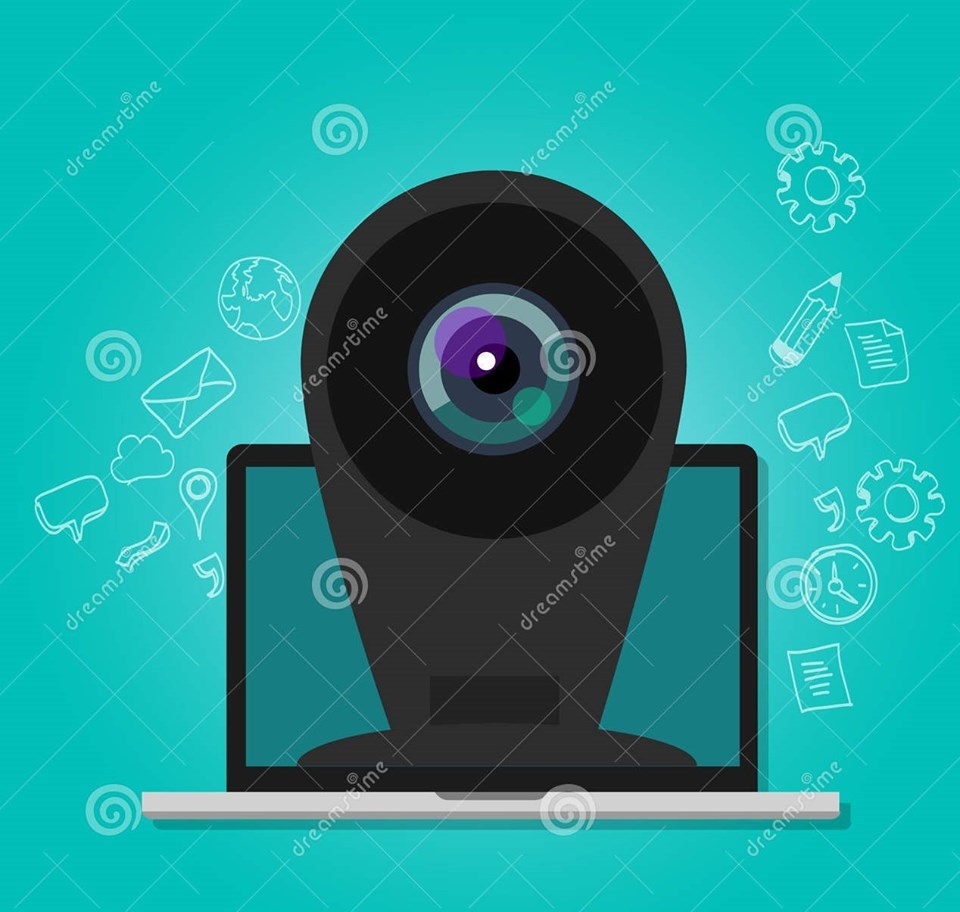
You might have heard that hackers can access your webcam. In the age of the Internet of Things, that’s a pretty scary notion.Not only might hackers be looking through the webcam on your computer, but they might also be watching through your home security system or any other camera you have hooked up to your network.Think about it — how far are you from a camera right now? Just about everything has a camera on it these days. So how can you help protect yourself against webcam hacking?
How does a webcam get hacked?
Here’s one way.You might inadvertently install Trojan horse malware on your device. You might think you’re downloading a legitimate program. Instead, malware infects your computer.The malware might install remote desktop software — meaning, hackers could get control of your device, including your webcam. If this happened, you probably wouldn’t know it.Your privacy and security could be at risk. A cyber criminal could spy on you and use that knowledge to decide a good time to break into your home.
1. Update your software regularly
Keep your software up to date. This helps patch vulnerabilities in your software that could allow hackers access to your device.It’s easy to ignore those pop-up alerts that remind you it’s time to update your software. But don’t do that. Remember, your goal is to keep cyber criminals out of your devices.And that includes minimizing the risk of anyone taking control of your webcam.
2. Always use a firewall and lock down your network
Keep your firewall activated.A firewall is a network security system. It provides a wall of defense by monitoring traffic to and from your network. In short, it helps keep the bad guys out.Your computer probably comes with a firewall, which will prevent unauthorized access to your computer. Keep in mind, most firewalls need to be turned on. If you’ve never turned on your firewall, it’s a good idea to do it now.Microsoft offers other details online, plus this reminder: “Turning off Windows Defender Firewall might make your device” “more vulnerable to unauthorized access.”
3. Secure your Wi-Fi
Hackers may target your home wireless router to gain access to your network. That means they might access things like your emails, bank accounts, personal schedule, and webcam.Here are a few basic tips to help protect against that.
4. Avoid all suspicious links
Cyber criminals can gain control over your device including your webcam by tricking you into installing malware.That’s why you should never click on suspicious links in emails or download files from people you don’t know. This is one of the most common ways that hackers gain access to your machine.What’s a smart defense? Only download attachments and click on links in emails from people that you trust. Even then, if something looks suspicious, call or text them to find out if it’s legitimate.
5. Don’t chat with strangers online
A cyber criminal might chat with you online to get your personal information or trick you into downloading malware that compromises your webcam.Here are a few dos and don’ts to consider if you decide to chat with a stranger.
6. Watch for camera indicator light to turn on by itself
If your camera indicator light goes on and you didn’t do it it’s a likely sign your webcam has been hacked.And if the indicator light doesn’t go on? Keep in mind that hackers can sometimes disable the light.Indicator light aside, hackers have had real-life success hijacking webcams.
7. Get a virtual private network (VPN)
Security software does a lot of the work in blocking malware that could lead to someone remotely taking control of your webcam but it’s smart to add another layer of security.That’s where a virtual private network comes in.A VPN gives you online privacy and anonymity. It creates a secured, private network from any internet connection you access. That could be in your home or on a public Wi-Fi network.Public Wi-Fi networks can be especially vulnerable to hacking, but a VPN helps close that door to spying.
How to check if your webcam is hacked
- Unplug – An unplugged external webcam can’t be compromised.
- Change your password – This is especially important for webcams that come with a default password — often known to hackers.
- Keep software up to date – This includes webcam software. Doing so closes doors hackers might try to enter.
- Remember the basics – Use trusted security software, and regularly scan your computer for malware.
- Use trusted tech support – Unethical technicians may install remote-access programs when your computer is in the shop. Make sure you trust your tech. The same goes for remote support. Giving remote control of your computer could make you vulnerable to having your webcam hijacked.
- At one time or another, you’ve probably had that feeling you’re being watched — even if it’s just you and your webcam.That’s why it’s smart to know about webcam security. And that starts with learning how to secure your webcam and help prevent webcam hacking.
Article By – Harshita C. Jadhav